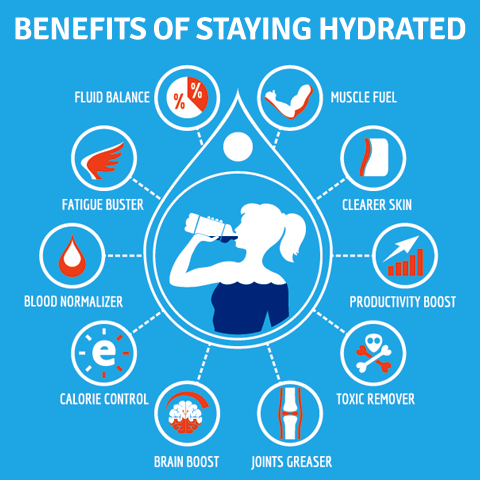Natural Solutions for Digestive Health
It is responsible for breaking down food, absorbing nutrients, and eliminating waste. However, many people suffer from digestive issues such as indigestion, bloating, gas, and constipation. Instead of relying on over-the-counter medications, there are natural solutions that can help promote a healthy digestive system.
Eating a Balanced Diet
One of the most important factors for good digestive health is maintaining a balanced diet. This means consuming a variety of fruits, vegetables, whole grains, lean proteins, and healthy fats. Avoiding processed foods, excessive sugar, and unhealthy fats can reduce the risk of digestive issues.
Adding high-fiber foods to your diet can also improve digestion. Fiber helps regulate bowel movements and prevents constipation. Foods such as beans, whole grains, nuts, and vegetables are excellent sources of fiber.
Stay Hydrated
Proper hydration is essential for a healthy digestive system. Water helps break down food, soften stool, and promotes regular bowel movements. It is recommended to drink at least 8 glasses of water per day. Herbal teas and natural fruit juices are also good options to stay hydrated.
Avoid Trigger Foods
Identifying trigger foods and avoiding them can greatly improve digestive health. Common trigger foods include spicy foods, greasy foods, caffeine, alcohol, and carbonated beverages. These foods can irritate the digestive system and lead to symptoms such as heartburn, acid reflux, and bloating.
Manage Stress
Stress has a significant impact on our digestive system. When we are stressed, our body enters a fight-or-flight response, slowing down digestion. This can lead to indigestion, stomachaches, and other digestive issues. Engaging in stress-reducing activities such as yoga, meditation, and deep breathing exercises can help promote a healthy gut.
Probiotics and Fermented Foods
Probiotics are beneficial bacteria that help maintain a healthy balance of gut flora. They can be found in fermented foods such as yogurt, kefir, sauerkraut, and kimchi. Consuming these foods regularly can improve digestion, boost the immune system, and reduce the risk of digestive disorders.
Chew Thoroughly
Many people underestimate the importance of chewing thoroughly. Properly chewing food allows for better digestion and nutrient absorption. It also helps break down food into smaller particles, making it easier for the stomach and intestines to process. Take your time while eating and savor each bite.
Exercise Regularly
Regular exercise not only benefits our cardiovascular health but also supports a healthy digestive system. Physical activity can stimulate intestinal contractions, preventing constipation and promoting regular bowel movements. Aim for at least 30 minutes of moderate exercise most days of the week.
Avoid Overeating and Late Night Eating
Eating large meals or snacking late at night can put strain on the digestive system. This can lead to symptoms such as indigestion, bloating, and acid reflux. To promote good digestive health, eat smaller portions and avoid eating within 2-3 hours of bedtime.
Conclusion
Achieving good digestive health is possible by making simple lifestyle changes and incorporating natural solutions. By maintaining a balanced diet, staying hydrated, managing stress, and incorporating probiotics and regular exercise, we can support the health of our digestive system. It is important to listen to our bodies, identify trigger foods, and practice mindful eating. By adopting these natural solutions, we can enjoy better digestive health and overall well-being.


